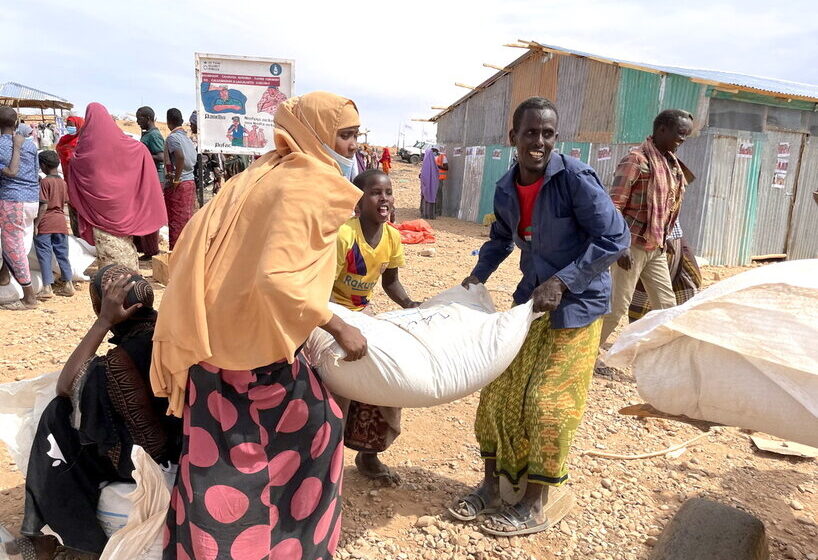
In Ethiopia, women trace the outlines of peace
Even as war continues, civil society groups and international human rights lawyers seek post-conflict healing based on the rights of the most vulnerable.
Source: CS Monitor
March 8, 2022
Throughout the civil war in Ethiopia, now in its 17th month, consistent and accurate assessments of the fighting and its humanitarian impact have been frustratingly hard to come by. The government has maintained a blockade on the northern ethnic state of Tigray to isolate and hem in a rebel force. The warring sides have laid out irreconcilable conditions for peace talks.
International groups hailed a lull in fighting three months ago after the government repelled the Tigrayan advance on Addis Ababa, the capital, and declared victory. Observers hoped a window had opened for peace. But fighting continues. The government, supplied with drones from Turkey and the United Arab Emirates, seems intent on using the battlefield to pursue its conditions for peace.
This week the international community launched a different approach. The United Nations Human Rights Council deployed a team to investigate potential war crimes committed by both sides. That project is based on a view that truth, reconciliation, and inclusiveness are prerequisites for enduring peace.
Its success may also depend on drawing on a deep reservoir of strength: women.
Two of the three U.N. team leaders are African women. Within Ethiopia, women hold 50% of the seats in the Cabinet of Prime Minister Abiy Ahmed, including the ministries of Defense, Finance, and Peace. For the first time a woman is president, a largely ceremonial post.
That gender parity in government is building greater expectations within civil society. Last month lawmakers formally approved a new National Dialogue Commission to promote unity among the country’s rival political and ethnic groups. Culled from a list of 632 potential members, the 11-person panel includes only three women. Ethiopian women’s groups are demanding more seats.
“Women suffer the negative consequences of the absence of national consensus,” wrote Endegena Ashenafi and Elizabeth Ashamu Deng, two Ethiopia-based Oxfam officials, in an essay for African Arguments news site. “Their voices and leadership should contribute equally to addressing the root causes of crises in Ethiopia.”
As a result of the war, 5.2 million people in Tigray need emergency assistance, 2 million people in the state have been displaced, and more than 100,000 children are at risk of dying from malnutrition, according to a running tally by the Council on Foreign Relations. Since November, U.N. human rights chief Michelle Bachelet said Monday, airstrikes have killed 304 and wounded 373 civilians in Tigray. Her office also received 304 claims of rape against Tigrayan forces in states bordering Tigray.
Successful peace processes in other countries emerging from civil and guerrilla warfare underscore the importance of restitution for those caught in harm’s way. “Peace must be fair, acknowledged, and accepted by victims and society in general,” Sergio Jaramillo, Colombia’s then-High Commissioner for Peace, told a conference of the International Center for Transformational Justice in 2015. “Peace must be transformative. It must break the cycles of violence and end the cycle of historic revenge.”
Kaari Betty Murungi, a Harvard Law School-educated human rights lawyer from Kenya and one of the leaders of the U.N. war crimes investigating team in Ethiopia, notes that rebuilding societies after conflict requires acknowledging the specific crimes that women and children face during war. That point underscores the unique insight that women can bring to a healing national dialogue in Ethiopia.
“Justice means different things to different people,” she said in a 2018 interview with the Wayamo Foundation in Kenya. “There is retributive justice. But there is also reparatory justice.”
The shape of peace need not await the outcome of war. In Ethiopia, an insistence on inclusivity and restorative justice is already taking root.
